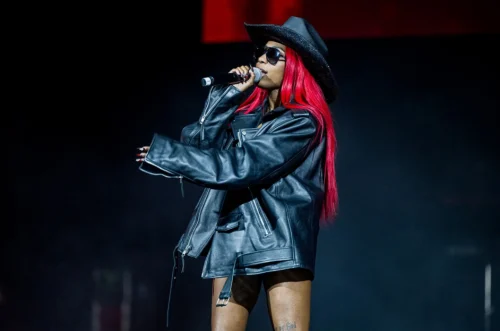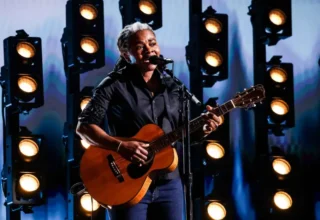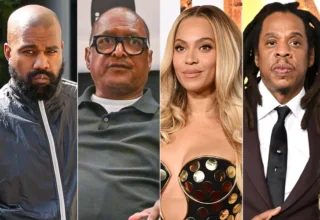The outlaw country princess opens up about shifting attitudes in Nashville post-Cowboy Carter.

From Shaboozey‘s runaway breakout hit “A Bar Song” to Sabrina Carpenter‘s drawl-inflected “Please Please Please” and Post Malone and Morgan Wallen‘s Billboard Hot 100-topping “I Had Some Help,” country music is back on top. Of course, a major player in this moment, specifically in the platforming of Black country artists in this moment, is Beyoncé.
At the top of the year she unleashed her Billboard 200-topping Cowboy Carter, the second act of her still-unfurling trilogy, featuring a slew of rising Black country stars, including Reyna Roberts, who is a credited artist on “Blackbiird” and harmonizes in the background on “Tyrant.”
“From the very moment I heard my voice on [“Tyrant”], I couldn’t believe it,” Roberts gushed to Billboard backstage after her performance at Blavity House Party on Saturday (June 15). “I’m still so thankful that Beyoncé brought us onto a project and made us a little part of her legacy because people here weren’t doing that, but she did.”
Despite Black artists being foundational to the creation of what is now recognized as country music, the genre’s roots have been whitewashed and obfuscated by those who wanted to erase the contributions of key players such as Leslie Riddle, Rufus “Tee Tot” Payne, Arnold Schultz and Gus Cannon. With the release of Cowboy Carter — which, in addition to Roberts, featured collaborations with Tanner Adell, Brittney Spencer, Tiera Kennedy, Shaboozey, Willie Jones and the legendary Linda Martell — a mainstream Black country boom is unfolding in real-time.
None of the artists featured on Cowboy Carter are new to the country music industry. Many of them have been trying to break through for close to a decade, but Beyoncé’s latest LP has been the catalyst needed to sidestep the Nashville machine and force industry gatekeepers to truly pay attention. After all, when Beyoncé released “Texas Hold ‘Em,” Cowboy Carter’s Hot 100-topping lead single, back in February, Billboard reported a residual streaming boost for the catalogs of other Black women in country; Robert’s streams jumped 250% in the week following the release of “Texas.”
“When I was [first] coming to Nashville, I was telling people my goals, my dreams, like I’m going to work with Beyoncé,” says Roberts. “People just weren’t seeing it. I met with a lot of labels [in Nashville], and everybody passed on me. It’s so interesting to see how people treat me now. I’m the same person, I’m thankful my personality hasn’t really changed, my talent hasn’t changed, I’m the same individual. But it took Beyoncé and a lot of answered prayers from God for some people to see what they weren’t able to see before.”
For Roberts, the rest of 2024 is all about making sure this moment isn’t just a flash in the pan. The “Stomping Grounds” singer is currently hard at work on her new album, the follow-up to 2023’s Bad Girl Bible, Vol. 1, as well as exciting endeavors across different realms of entertainment.
“With this next album, every song is going to have a story [and] have a visual,” she reveals. “I want to make sure I’m telling the best stories that I can, so it takes a little bit of time. It’s definitely coming. It’s going to be something that I’m proud of and that I want to sing for the rest of my life.”







